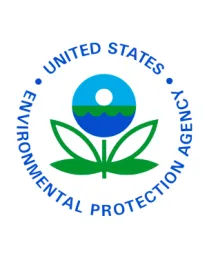On September 18, 2017, the U.S. Environmental Protection Agency’s (EPA) Office of Inspector General (OIG) issued a report on an evaluation conducted by OIG entitled “EPA Needs to Manage Pesticide Funds More Efficiently.” OIG states that it conducted the audit “to determine whether EPA manages the Pesticides Reregistration and Expedited Processing Fund (known as the [Federal Insecticide, Fungicide, and Rodenticide Act (FIFRA)] Fund) and the Pesticide Registration Fund (known as the [Pesticide Registration Improvement Act (PRIA)] Fund) effectively to minimize reliance on appropriated funds.”
In the report, OIG states its finding that “EPA should manage the [Federal Insecticide, Fungicide, and Rodenticide Act (FIFRA)] and [Pesticide Registration Improvement Act (PRIA)] Funds more effectively by reducing excess fund balances to within a target range. As of September 30, 2016, [OIG] identified excess funds of approximately $21.4 million for FIFRA and $8.5 million for PRIA, for a total of $29.9 million. A reduction in fund balances would increase the availability of appropriated funds for other environmental purposes.”
In the report, OIG makes the following recommendations to EPA:
-
For the Assistant Administrator for Chemical Safety and Pollution Prevention (OCSPP) to “establish a target range for its FIFRA and PRIA Fund balances and develop and implement a plan to reduce excess funds to within the target range”; and
-
For the Chief Financial Officer to “reconcile the FIFRA and PRIA Funds’ balances to the corresponding liabilities.”
The report states that EPA concurred with establishing a target range and developing a plan to reduce excess funds for FIFRA Fund balances, but did not agree with establishing a target range and developing a plan to reduce excess funds for PRIA Fund balances, citing the lack of predictability of PRIA collections. OIG stated that it “still believe[s] PRIA has excess funds that should be addressed,” and “[t]he agency agreed to reconcile FIFRA and PRIA balances.”
This report follows two OIG reports issued on August 14, 2017, on audits of the financial statements of (1) the FIFRA Fund; and (2) the PRIA Fund for fiscal years (FY) 2015 and 2016. OIG is required to perform an annual audit of the financial statements of the FIFRA Fund under the Food Quality Protection Act (FQPA), and of the PRIA Fund under PRIA.
OIG states in its reports on the audits for FYs 2015 and 2016, of both the FIFRA and the PRIA Funds, that it “noted a material weakness in that the EPA cannot adequately support its FY 2016 [PRIA/FIFRA] Fund costs.” OIG further stated, however, that this issue has been noted in prior audit reports, and that EPA is taking corrective actions.” For those reasons, OIG stated that it was making “no new recommendations for [these] material weakness[es].” In FYs 2016 and 2015, EPA “lost the audit trail to properly support how much of the [PRIA/FIFRA] payroll expenses were paid for by appropriations.” To address these losses, in October 2016, EPA instituted an enhancement to its timekeeping system’s cost allocation that will allow for “the creation of an audit trail to capture costs incurred by the [PRIA/FIFRA] Fund and other appropriations that support [PRIA/FIFRA]-related activities.”
Commentary
The reality of why the FIFRA funds are in surplus is a political response to the overall budgetary politics of Congress. The Office of Pesticide Programs (OPP) has not been authorized to utilize these funds fully or freely hire staff due to the budget agreements of Congress, and, more recently, due to the attempt by the new Administration to keep the Presidential budget proposal more in balance. The OIG knows this also, but “politics” is not the concern of a good audit, and this is not helped by the problem of EPA having “lost the audit trail” of how these monies were spent. PRIA reauthorization is soon to be overdue, and now appears perhaps to be in some jeopardy, at least in the near term. Fortunately for OPP, the surplus in these funds that OIG addresses will be able to buy the program some time to continue relatively “as is” while waiting for PRIA politics to subside to the point where reauthorization is approved and the program can focus more on the improvements suggested by the OIG report.




 />i
/>i

